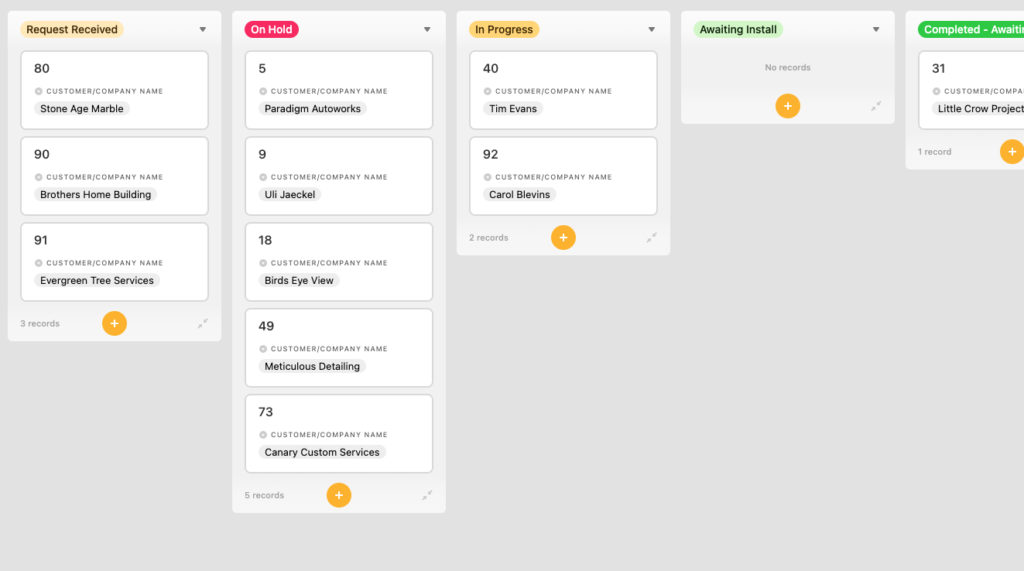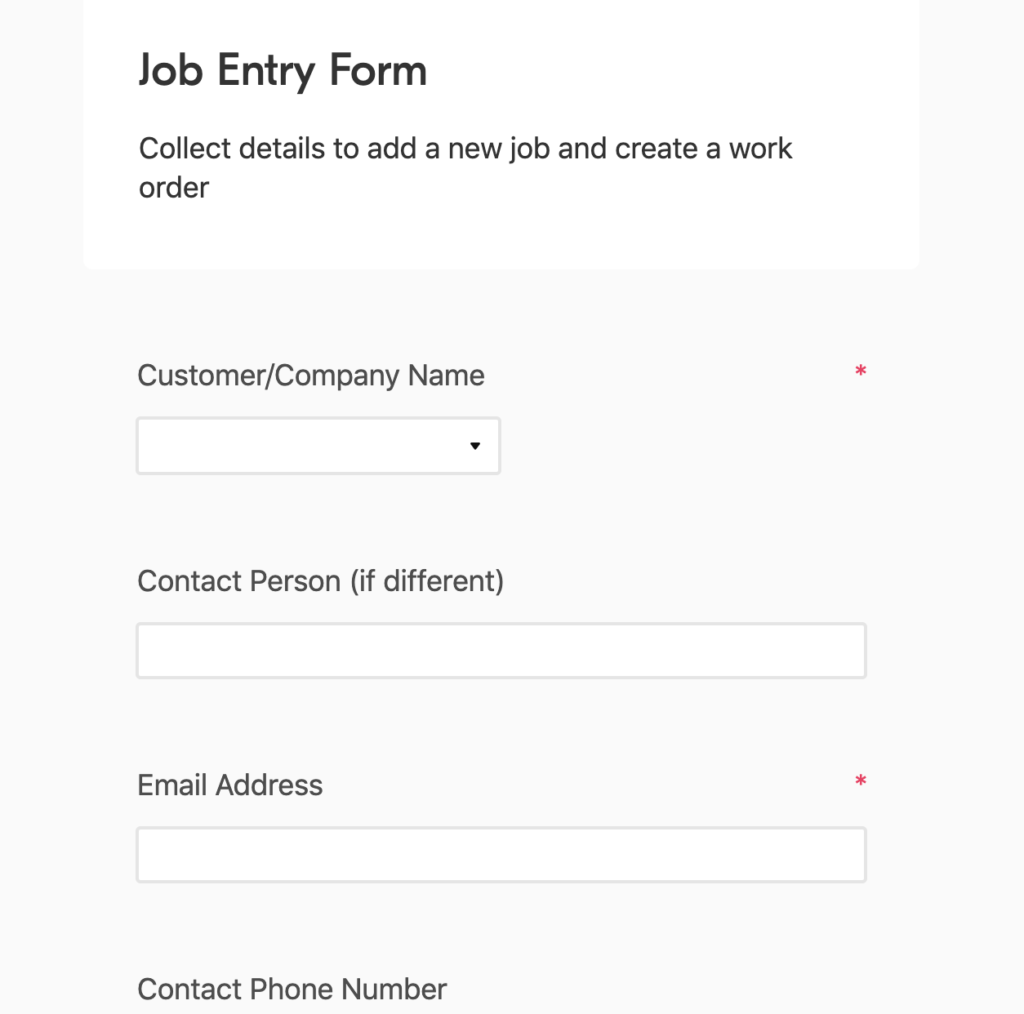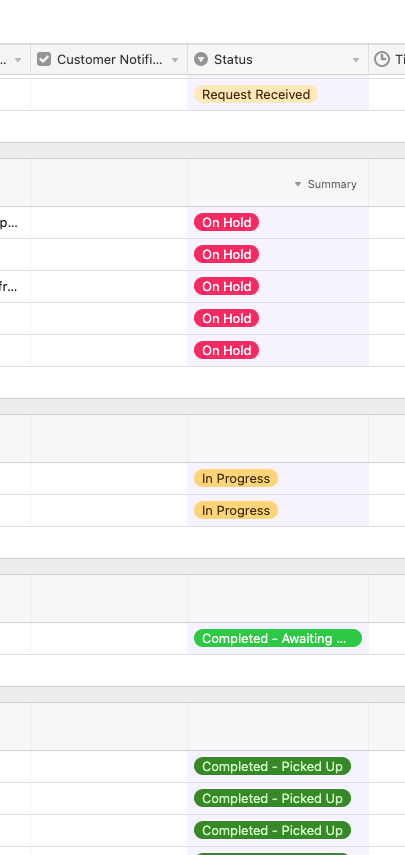One of the biggest challenges many of the businesses I work with face is the ability to manage ongoing projects and share information related to each project across the organization efficiently. Making sure every department or team member has the information they need to do their job properly ensures that the team as a whole is successful.
There are dozens of project management tools available, all of which are powerful and offer a ton of features to suit a variety of needs. Another challenge with these tools, however, is adopting them across an organization. Some teams are more resistant to change and, more often than not, these tools are only as effective as the people that use them.
Unless the whole team uses the tools, they are essentially irrelevant.
When I look for tools to use myself, I focus on a few key features to ensure that.
Arguably one of the most well-known data management software options available is Microsoft Excel. With its row and column layout, the ability to perform functions on data, and an easy way to format cells to make the information easy to read makes Excel the most recognizable applications around. It has even led to the various imitation tools such as Google Sheets and LibreOffice.
My favourite view in Airtable is the Grid View, which arranges data in exactly this format. Scroll down for the various records, scroll right to see the data related to those records. Simple, recognizable, and intuitive.
The columns can be arranged to provide the most important information up-front and records can be sorted by specific information to allow for better task/job management.
Other views include Kanban, Gallery, and Calendar.

In this article, I will discuss how I implemented Airtable at Renoson Auto Films to help the team collect information for new jobs, manage ongoing jobs, and store customer and job information for easy access by all members of the team. I will also explain how I setup automations to manage customer relationships through follow ups/check ins and asking for feedback in the form of personal messages and Google/Facebook reviews.
One of the most critical parts of customer acquisition is ensuring that the customer's needs are heard and understood. Depending on how the business operates, generally one team member is responsible for handling the customer request, and another team member (or department) is responsible for carrying it out. Making sure the information is transferred between teams (and team members) is critical.
For Renoson, I setup a simple database designed to capture and display key information related to the customer and their request.
Key information such as:
When jobs are added, they are assigned a unique job number. No two records can have the same number so this ensures that all job information is kept separate from other jobs for the same customer, or even the same project.
When the record is generated, a folder with a pre-determined file structure is created on the Renoson server I set up. This file structure is where the team can collect assets (logos, fonts, images), generate design and print files, create mockups etc. for each job.
If I create a new job number 82, the customer is Paradigm Autoworks and the job is to create an alupanel sign, a folder is created in the Paradigm Autoworks folder on the Renoson server with the name 82 - Alupanel sign.
When a team member is looking up job history for Paradigm, they can search for Paradigm in Airtable and get all of the jobs performed for that customer with their unique job number and description. They can then look up the files specifically related to that job by referencing the job number with the folder created on the server.
Team members can also see other information related to that job, including time spent, the job quote etc. This can help with future job costing and comparison.
So accessing and viewing records is one thing, but what about easily creating them in the first place? More often than not, team members and taking requests via phone, or even in person, and therefore need an easy way to add information to make sure it's captured correctly.
This is where Form View comes in.
Once you have your database set up, you can create a form for entering records into the job list easily, from any device. You don't need an app installed - just an internet enabled device with a browser.

With Renoson, I setup the form and created a shortcut on the shop iPad that allows the shop team to quickly access the form and collect information right on the shop floor. The name of the customer, contact information, job description, and job category can all be captured easily through a basic form.
A unique job number is assigned and the record is added to the database and all of the important information becomes available to the team.
I also setup different automations, which are triggered when specific events happen. I'll get to it but if you're impatient, jump ahead here.
For many businesses, as customer lists grow and services get expanded, it's important for team members and various departments within the company to be able to identify customers and the services/products they have purchased. This is helpful for onboarding new employees, either as replacements or to scale the operations. Categorizing previous jobs helps segment customers into corresponding groups for either re-marketing or identifying which services are more popular than others.
Renoson offers a variety of services, from paint protection film to vehicle wraps, decals and signage.
Paint protection film is a consumer-driven market, with the end user generally being the purchaser for their own vehicle. Decals and signage, however, are generally purchased by businesses for commercial use. The marketing of these two products requires different approaches and so building a customer list and profile of the type of person who purchases these helps generate new and repeat business in the future.
For Renoson, I built in a job categorization feature that helps differentiate the different types of jobs. Discussed in the automation section later on this article, categorizing jobs also tailors specific follow-ups and emails specific to each type of customer.
Once the job/order has been received and entered into the system, managing the flow of the job through the pipeline keeps everyone in sync across the team - from production to installation to sales and administration. At any point in time, an employee can check the job list and see where a job is in the process and update it as it moves along. This is especially helping when informing customers of their job status.

For Renoson, the vast majority of their jobs involve multiple steps.
Vehicle wraps require:
Paint protection film installations:
The graphics department does not install the film on the vans. They are responsible for managing the design and prep of the graphics before they go on the van. This happens independently of the installation team, who may be installing multiple vehicles at the same time.
When the graphics department completes the prep, they change the status from "In Progress" to "Awaiting Installation". This triggers a notification for the installation department that the prints are ready and they can schedule the installation with their own team. All of the information, such as vehicle, wrap type, and the design/layout information are stored in the customer record so they know exactly what they need to do. They can also comment on the customer record for questions to each department, maintaining a central record of communication with the company.
Having customer and job records helps the team keep track of what work was done in the past to make it easier to quote jobs in the future. Keeping the process simple and streamlined means than anyone can look back through the specific customer history and see:
I recently also used the job history database that was built for Renoson to launch a campaign to request Google reviews. Because we knew what work past customers had done, we could appropriately target them for requests. it makes the process more personal and increases the likelihood they'll respond to our request.
Aside from the record-keeping functionality and the inherent value that provides for a business, being able to create automations (ie. an automatic action) when information is added or records are changed saves departments across the business incredible amounts of time. One of the most common things I see with our clients is that they are too busy to do things like follow ups, appointment reminders, or keep information up to date if more than a few seconds is required to do so.
The system I built for Renoson takes common actions/inputs for job and project management and uses them as triggers for other tasks that may involve multiple steps. This has saved a ton of time and also makes sure the customer feels looked after and keeps Renoson front of mind.
Some examples of these automations include:
Overall, automations help simplify the flow information both within the organization, but also between the company and their customers. From segmenting customers and automating the marketing/communication process, to keep the entire staff in sync, the job tracking system I built for Renoson created a ton of value and benefits. The design of the system also allows for future expansion and customization down the road, so it will continue to grow as they do.
To learn more about how the system works or to ask about how a system like that can make running your business easier, feel free to contact me.
Renoson Auto Films is the Island's leading automotive film supplier and installer, specializing in:
Visit their website at www.renoson.com to learn more.